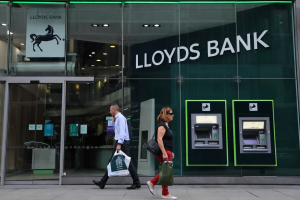Stablecoins — digital tokens designed to maintain a stable value — are rapidly gaining popularity as tools for cross-border payments, remittances, and trade finance. However, Federal Reserve Governor Michael Barr has warned that without strong regulatory guardrails, they could pose significant risks to the financial system. Speaking at the 2025 DC Fintech Week conference, Barr emphasized that while the new Genius Act provides a framework for stablecoin regulation, its success depends on how well federal and state regulators implement its provisions.
Understanding Stablecoins and Their Promise
Stablecoins are a form of digital banking asset designed to hold a consistent value — typically pegged to the U.S. dollar or another stable currency — to make digital transactions predictable and reliable. Unlike bank deposits, stablecoins are not insured by the Federal Deposit Insurance Corporation (FDIC), nor do their issuers have access to central bank liquidity in times of stress.
Barr noted that stablecoins could offer major efficiencies for global businesses, particularly in cross-border payments and corporate treasury operations. These benefits could complement traditional financial systems and expand access to digital banking services worldwide. However, he cautioned that “the long and painful history of private money created with insufficient safeguards” demonstrates the need for strong oversight to avoid potential financial instability.
Hidden Dangers Behind the Stability
Barr highlighted that the quality and liquidity of reserve assets backing stablecoins determine their reliability. Because issuers profit from investing these reserves, they may be tempted to take greater risks — for example, holding longer-term or higher-yield assets. Such strategies, while profitable in stable periods, can quickly backfire during market stress.
“Stretching the boundaries of permissible reserve assets can increase profits in good times, but risks a crack in confidence during inevitable bouts of market stress,” Barr said. He compared the potential for a loss of confidence to the 2008 Reserve Primary Fund collapse, when a money market fund “broke the buck” following Lehman Brothers’ bankruptcy, sparking a broader financial panic.
He also warned that under the Genius Act, stablecoin issuers could theoretically use foreign-approved cryptocurrencies like Bitcoin as reserve assets. If Bitcoin were to lose value sharply, it could undermine the one-to-one redemption promise that gives stablecoins their stability, creating systemic risk.
The Call for Regulatory Coordination
To ensure long-term viability, Barr urged regulators to establish robust guardrails — including requirements for capital, liquidity, and supervision — to protect users and the broader financial system. He called for federal and state agencies to coordinate closely to “fill in important gaps” and create a consistent framework that balances innovation with financial safety.
“Stablecoins will only be stable if they can be reliably and promptly redeemed at par in a range of conditions,” Barr said, stressing the importance of strong oversight.
Closing Insights
Stablecoins may revolutionize how we transfer money, manage credit, and conduct digital banking, but their success depends on trust — both from consumers and regulators. As global interest rates fluctuate and crypto-linked assets remain volatile, careful supervision will be critical to integrating stablecoins safely into the financial system.
For investors and policymakers, Barr’s message is clear: innovation must not outpace regulation. The future of stablecoins — and their potential to reshape the global payment landscape — will depend on building confidence through transparency, accountability, and prudent risk management.

 Previous Post
Previous Post
 Next Post
Next Post



